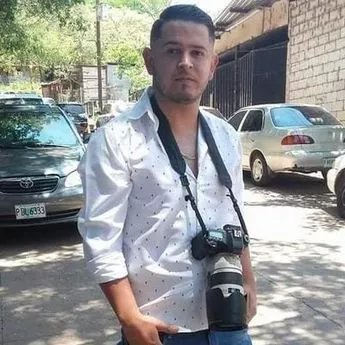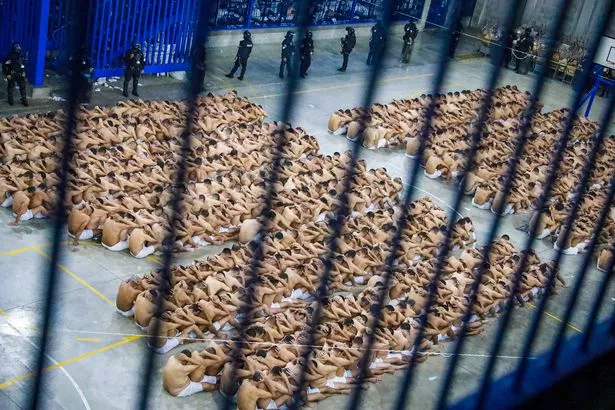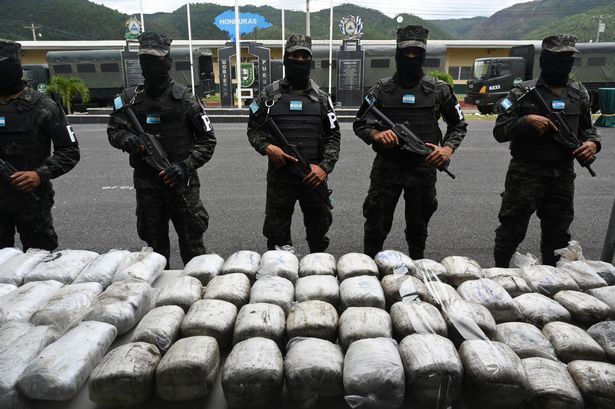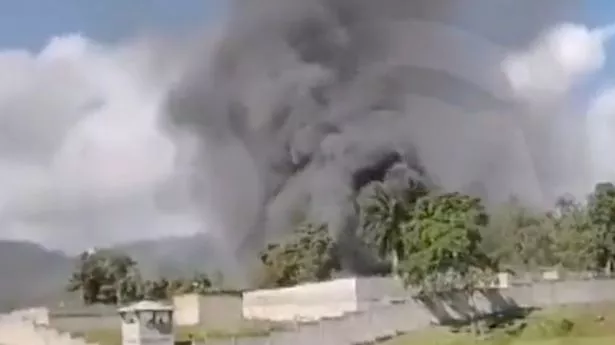Honduran investigative journalist Marcel Orsoto has seen inside Honduras and El Salvador’s infamous prisons and described the carnage exacted by criminal gangs even behind bars.
An epidemic of organised crime in Honduras and its neighbouring so-called “prison state” of El Salvador has led their respective governments to impose brutal crackdowns on suspected gang leaders and their accomplices. According to Amnesty International, more than 66,000 people have been arbitrarily detained and imprisoned in El Salvador since the Salvadoran Legislative Assembly declared a “state of exception” on March 27 last year.
This follows a spike in homicides for which the Mara Salvatrucha (MS-13) criminal gang was blamed. The order was initially set to last thirty days but has been extended fourteen times, meaning civil liberties such as the presumption of innocence and the right to a defence have been indefinitely suspended.
By January this year, 39,000 people had been charged with the crime of “unlawful association” and 8,000 with membership to a “terrorist organisation”. El Salvador now has the highest incarceration rate in the world, with almost 2% of its adult population stuck behind bars.

(
OsortoMarcel/X)
Even as between 10,000 and 15,000 innocent people have been caught up in President Nayib Bukele’s offensive, there is little public outcry against wrongful detentions or inhumane conditions. A poll by Salvadoran think tank FUNDAUNGO in June this year found that 53 percent of respondents had positive views of the state of exception, with only 9 percent considering it a negative. 40% ranked “crime reduction” the greatest achievement of the Bukele administration.
Speaking to Al Jazeera, Professor Jose Miguel Cruz from Florida International University explained: “The magnitude of the gang problem was a serious security challenge for many people, it’s true. In some neighbourhoods, they [the gangs] were the ones who ruled. Now, you don’t have to deal with that, and people are understandably reacting positively to this.”
But mass imprisonment has done little to disrupt organised gang crime or stem the tide of violence within the prison walls.
The director of El Salvador’s largest prison, La Esperanza – which holds 33,00 people despite having a capacity of 10,000 – once told Mr Orsoto how gang members “massacred their guards, tore off one’s head and played soccer with it”.

(
Anadolu Agency via Getty Images)
And they continue to wield significant power and influence outside the prison perimeters, too.
Mr Orsoto said: “Most of the murder orders come from prisons, which is where the ringleaders are. They order the extortion, murder and invasion of whole neighbourhoods due to the access to communication they have. And this is carried out “in collusion with authorities, be it police, prosecutors or public officials.”
In Mr Orsoto’s home country of Honduras, the playbook is similar – and the consequences just as dire. He told the Sun that prisons “are governed by two criminal subcultures – the 18th Street Gang (Barrio 18) and The Marra Salvatrucha (MS-13)”.
And in June this year, 46 women were slaughtered at Tamara jail after a violent clash broke out between warring gangs.
“It was one of the darkest days in the history of Honduras”, Mr Orsoto recalled. He had been one of the few allowed to enter the jail after the massacre. He continued: “There were bodies piled up in a bathroom, charred women who ended their last days in this world hugging, or others who ended up underneath their beds in their desperation to escape the flames”.
In response, Honduran President Xiomara Castro accused prison guards of aiding and abetting the killing spree and transferred control of the prisons to the army. Skinhead gang inmates were pictured cowering at gunpoint as they sat half naked on the floor in tight rows, waiting for the military police to finish their so-called “Faith and Hope” operation. More than £7million worth of contraband was seized, including thousands of rounds of ammunition, pistols, assault rifles, grenades, cash, and jewellery.

(
AFP via Getty Images)
President Castro now plans to build an isolated prison complex on the Islas del Cisne archipelago some 155 miles off the coast and banish Honduras’ most-feared gangsters there.
Yet Josue Sanchez, an expert in criminal governance at Florida International University, does not believe Honduras will be able to pull off the kind of crackdown its neighbour did.
“You can tell the difference in El Salvador. It was a complete 180 degree turn – everything changed”, he told the Sun. He laughed at Honduras’ plans to send 2,000 gang members to an island prison colony.
“What will it solve? There are better ways to address the fact that they cannot control their own prisons”, he said.
This post was originally published on this site be sure to check out more of their content.







